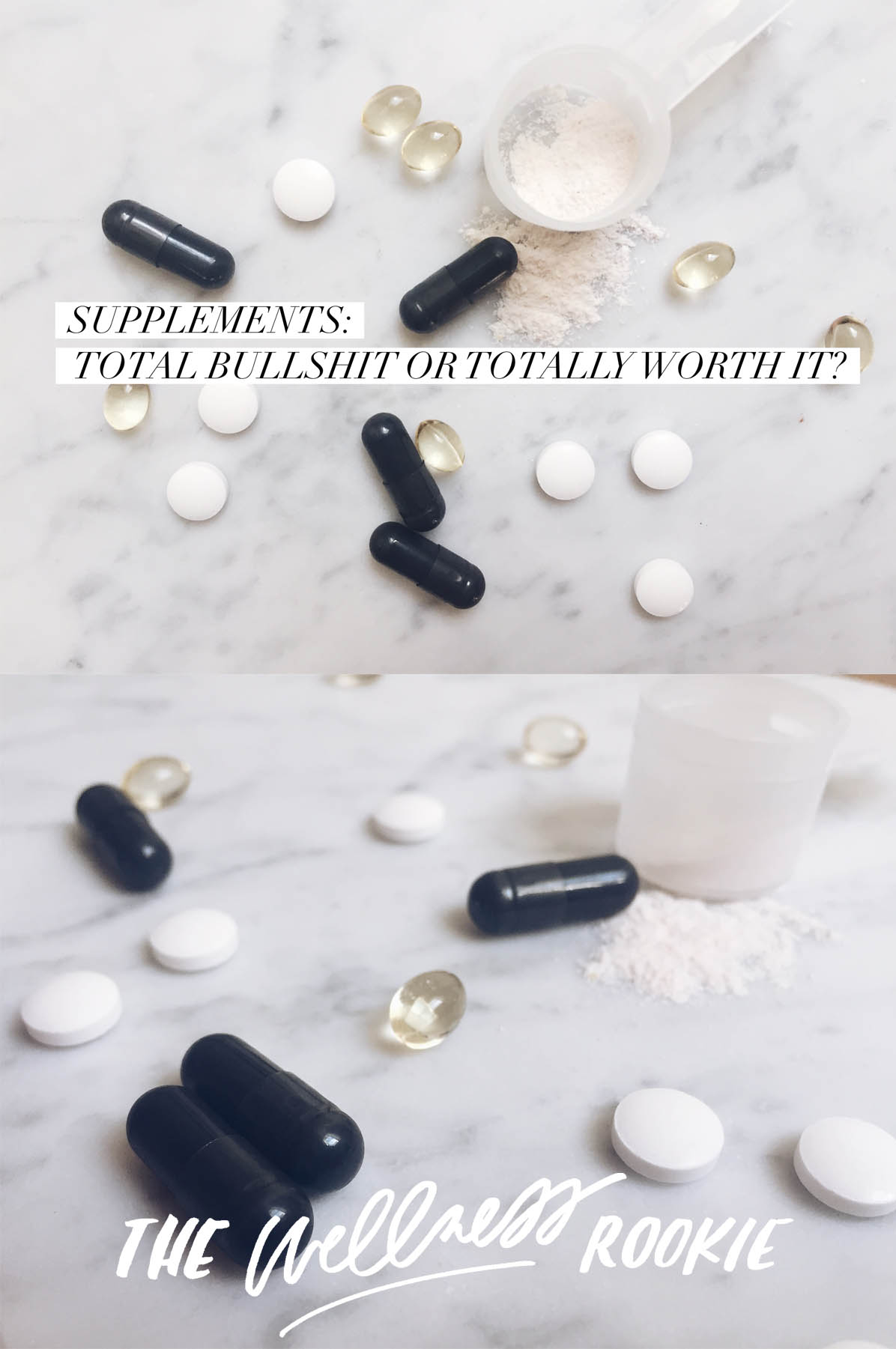Supplements: Total Bullshit or Totally Worth Taking?
Oh, the wide world of supplements. Where do I even begin?
If I had a dollar for every person that’s purchased a supplement without knowing what it does or how it works, I would be living on my own private island with young hot men feeding me frozen grapes.
In other words, the supplement market is completely saturated.
Stores like Walgreens, GNC, and even Costco, are carrying more products than ever. These products give promises such as weight-loss, more energy, better digestion, improved sleep, and even a bigger butt (trust me, I’ve seen those very words on a weight-loss supplement).
What they also promise me is one gnarly headache from seeing friends, family and clients get sucked in to the deep, dark supplement sea.
The industry is whack, and for that matter, highly unregulated. There is no set standard of guidelines that companies have to abide by for quality purposes. For example, if you were to buy a bottle of 500 mg Vitamin C, 2 out of the 5 pills you take would not have the stated amount of Vitamin C. Some may not have any at all.
There are also supplements out there that have an ingredient list a mile long with words you can’t even pronounce (weight-loss powders, I’m glaring at you). For example, this one: sodium aluminosilicate
Now, say that five times fast.
Don’t trust anything you can’t pronounce, except quinoa. Eat quinoa.
Even though I’m throwing the supplement industry some hardcore digs, it’s not all corruption and propaganda. There are companies out there that pride themselves on their high standard of manufacturing as well as their high quality ingredients. It’s these companies that I agree with, and these companies that actually help rather than hurt people’s health efforts.
“Don’t trust anything you can’t pronounce, except quinoa. Eat quinoa.”
I’m a big believer in getting your nutrients, vitamins and minerals from real food. Your body is meant to eat whole foods in their totally unprocessed form. But factors such as where you live, what season it is, how you exercise, and dietary restrictions, can prevent your body’s ability to get everything you need from food alone. That’s when supplements come into play.
I take supplements on a daily basis and definitely have my favorites. But, as I say time and time again, everyone is different. What works for someone else may not work for you. Always consult with your health practitioner before beginning any new supplementation regime.
What I do have, though, is experience under my belt working with clients all over the world with similar health issues. Things like low energy, bad sleep habits, an inconsistent mood, and poor digestion seem to be a parallel amongst them all. So I’ve compiled my top foolproof ways to tell if a supplement is really worth taking so you can take your health to the next level.
1. Location, location, location.
Always look at where you’re buying from. Is it an online site? Is it a specialty store? A wholesale warehouse like Costco? Make sure you trust the location you are purchasing from, and make sure they know what they are talking about. A good way to do this is stick to all-natural stores that specialize in vitamins and minerals and who have a researched staff on hand. This allows you to ask questions from a trusted source when figuring out what supplements to take. You can even schedule a 1-on-1 consultation at most places and get the help you need for free.
2. Do your research.
Look at each supplement you are interested in taking and do some research. Get online, ask an educated doctor friend (we all have one, right?) and read reviews. You want to make sure what you are about to take uses high-quality ingredients and has a third party approval like a seal from the USP, NSF or Consumer Lab. The little extra research you do will definitely make it worth your while.
3. Don’t believe the hype.
Sometimes (okay, all the time) products that aren’t so great for you will put out ads, commercials and claims that are so out of left field that people must think they’re real. Claims like “cures cancer” or “lose 10 pounds in two days” are some you should think twice about before purchasing. Dietary supplements are not allowed to say they treat, cure, or mitigate any ailment. So don’t believe the hype.
The supplement world is a whirlwind of false claims and crazy products. They suck people in to a deep, dark supplement sea in hopes of coming out with a leaner body, clearer mind and new superpowers to conquer the world. The sad truth is anything but.
These three tips will help you navigate the supplement industry and help you choose the best ones to actually benefit rather than hurt your health. Because who wants to spend money they don’t have on supplements that don’t work?
Nobody.
*Please consult your healthcare practitioner before starting any supplementation program

